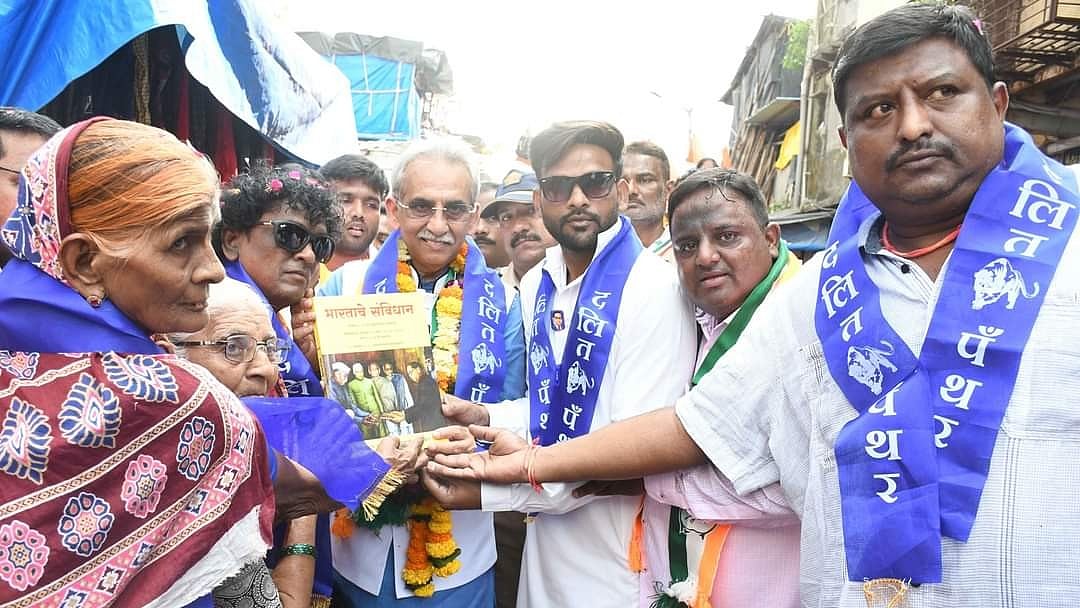Mumbai: As Mumbaikars gasp for fresh air, the BrihanMumbai Municipal Corporation (BMC) promises to make the city's air breathable with a slew of majors, including the Mumbai Clean Air initiative in its 2023-2024 budget, presented here on Saturday.
The Mumbai Clean Air initiative will work towards three broad goals - curb pollution concentration levels across various sectors; initiate a multi-level monitoring strategy for the city; and decentralise planning and increase community health awareness to reduce personal exposure.
Cracking the whip to discipline the construction industry, BMC Commissioner I.S. Chahal said that there are 3,500 construction sites in Mumbai which spew out dust and are the major cause of air pollution.
Though the realty sector is the backbone of the economy as it employs millions of people, dust pollution needs to be controlled for which the BMC will issue guidelines by next month-end to all realtors to ensure dust reduces and settles at the site itself.
Among these would be dust screens on the external face of buildings where construction/finishing works are on, sprinkling water on these curtains and at the ground level open spaces, wash the tyres of all vehicles exiting these sites, covering of all vehicles transporting debris/building materials, providing debris chutes during construction etc.
The city will have the highest number of air purification units in the country -- 19 -- at a total cost of Rs 54 crore, comprising 14 smog towers, each 30-feet, two for all the seven zones in Mumbai to control air quality through radio waves and electromagnetic actions.
These will ionise the particulate material and attract other air particles, which will become so heavy that they will fall and settle the dust, reducing 45 per cent pollution in a 1 km radius.
Besides the 14 smog towers, another five air purifiers shall be installed in the congested areas of Dahisar Toll Post, Mankhurd, Mulund Toll Post, Kalanagar Junction and Haji Ali Junction.
The BMC's plans have evoked positive reactions from pollution experts, including Bombay Environmental Action Group's Hema Ramani, Waatavaran Foundation's Bhagwan Kesbhat, Awaaz Foundation's Sumaira Abdulali and Conservation Action Trust's Debi Goenka, among others.
The city aims to have 3,400 electric buses by December 2023 and another 7,000 by March 2024, to reduce pollution.
Mumbai will also get five new Continuous Ambient Air Quality Monitoring Stations (CAAQMS) under the National Clean Air Programme with help from IIT-Bombay, MPCB, NEERI and other agencies.
The BMC will independently monitor the air quality around coal-based power plants and refineries where the AQI is higher than the rest of Mumbai, and appoint civic consultants for the industrial sector to check on the air quality, acting as monitors rather than regulators.
For the first time, the BMC will spend Rs 25 crore specifically for improving air quality, form a Clean Air Coordination Committee involving all stakeholders, issue public health advisories on bad air quality days on the lines of heavy rain days during monsoon.
Similar to the construction sector, guidelines will be prepared for government departments and agencies to reduce dust pollution from public infra projects, plans to install two construction-demolition waste processing units of 600-TPD each, enforcing all rules and regulations strictly.
For reducing road dust, the load of which had doubled in the past decade on Mumbai's overall pollution levels, the BMC will take up mechanical/e-power sweepers, procure sprinklers to settle dust on roads and pavements, deploy vehicle-mounted misting equipment and air purification units and ionisation-based air purification systems for dust mitigation.
The BMC will also encourage green vehicles, electrification of all BMC vehicles with provision of charging infrastructure, 3,000 electric BEST buses, convert old diesel/petrol vehicles to CNG, and fully adaptive traffic control systems installed at 258 junctions to be upgraded with latest technology and later expanded to the remaining 395 junctions.
The BMC will monitor and control burning of wastes at various places, build a 'waste-to-energy' plant of 600 TPD at Deonar, and install four TPD domestic hazardous waste processors at eight locations and biomining of legacy waste at Deonar.
Simultaneously, the BMC will give well-shaded and green neighbouroods, create green buffers in high-traffic corridors, plant 100,000 trees to create urban forests along Mithi River, Mahakali Caves, Swami Vivekanand Garden, Bharat Van Garden, and educate people on native species and planting methods.
(With inputs from IANS)








